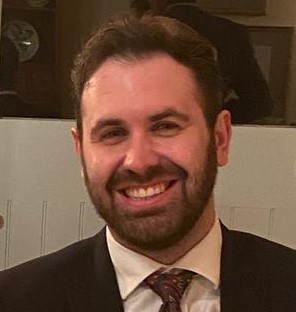___________________________________________
Welcome to this week’s myHSN Week in Health – a round-up of the biggest health news this week, and what it means for you
_____________________________________________
GPs to get access to cancer diagnosis tools
Vaccine breakthrough extends survival for brain cancer patients
COVID treatment menu is slimmed down
Funding for diagnosis hubs speeds up scan results
‘6000 more GPs’ promise is dropped by PM
_____________________________________________
GPs to get access to cancer diagnosis tools
What?
GPs are to be given direct access to cancer tests in the community, including CT scans, ultrasounds and brain MRIs.
Why?
GPs are sending more urgent cancer referrals than ever before, with resultant waiting times increasing due to capacity issues in hospitals for first appointments. Putting the scans in the hands of GPs may reduce the burden on hospitals by ruling out cancer before patients even need to step foot in a hospital.
How (does it affect you)?
If you have a vague symptom that a GP cannot explain, you may be more likely to get a scan to check for cancer. Unfortunately, a shortage of radiologists means these scans may not necessarily be reported as quickly as previously.
Equally, moving the work burden from hospitals to GPs means GPs are doing more work, that they are less trained to do – even with decision-making aids. And clearly, getting the scans in the first place is an issue – diagnostic hubs of CT and MRI scanners are seen as an answer to this problem.
Check out the myHSN analysis here.
_____________________________________________
Funding for diagnosis hubs speeds up scan results
What?
£30 million has been earmarked for community diagnostic centres (CDCs) by the NHS. Currently the three named centres are in Hampshire only.
Why?
There is a backlog of scans waiting to be performed in the NHS. CDCs aim to remove this backlog by providing scanners on a conveyor belt model in the community. Some larger centres may also offer endoscopy services. Patients attend on a day basis and then the investigations are reviewed by specialists, with results forwarded onto GPs. This removes hospital backlog and keeps the flow of emergency care through the hospital going.
How (does it affect you)?
Currently, if you live in one of the above areas, you will get a CT, MRI or even an endoscopy far quicker than before. Outside of these areas, wait for new CDCs to be announced.
_____________________________________________
COVID treatment menu is slimmed down
What?
NICE has reduced the number of COVID treatments available to general public, dues to concerns over cost-effectiveness.
Why?
Many medications were trialled and eventually approved for use during the COVID-19 pandemic. Now, with the pandemic largely behind us, for cases of COVID, the blanket use of expensive new drugs was deemed unnecessary and inappropriate – especially as evidence was often weak to support their use.
How (does it affect you)?
Despite this sounding like bad news, it means a slimmed down and streamlined treatment guideline. In rare and extreme cases of COVID, certain medications will always be available if absolutely necessary. The broad message here is that the NHS is only keeping drugs that both work well and are cost-effective.
_____________________________________________
Vaccine breakthrough extends survival for brain cancer patients
What?
A new vaccine treatment for glioblastoma (GBM) has shown patients live 3 further months on average, when compared to the current standard of care. This would be the first new treatment in glioblastoma care for around 20 years – 17 for new glioblastoma patients and 27 years for patients in whom it had come back.
Why?
Glioblastoma is a catastrophic cancer diagnosis, with the average patient living only 14 months from diagnosis. There has been intense focus on finding new treatments for GBM for decades, and this new vaccine trial is a promising breakthrough.
How (does it affect you)?
If approved by NICE – highly likely given how ground-breaking this treatment is – patients should be receiving this new drug within a year.

_____________________________________________
‘6000 more GPs’ promise is dropped by PM
What?
Rishi Sunak has left out the ‘6000 new GPs’ target from a letter to new health secretary, Steve Barclay MP, laying out the expectations put upon him by March 2024.
Why?
This is seen as a glaring omission, and a sign that – whilst 50,000 more nurses, and ‘new’ hospitals might be on the way – 6000 new GPs is a bridge too far for the new Prime Minister.
How (does it affect you)?
Of course this news has no immediate direct effect on you. However, this comes at a time when more GPs are needed than ever before. And at the same time, there is a new ambitious new plan from NHS England to ask GPs to request urgent cancer investigations.
myHSN wonders whether the new Prime Minister and Health Secretary need to reconsider their healthcare priorities for the next 18 months – especially not burdening GPs with even more work
_____________________________________________
As always, best wishes from myHSN!



